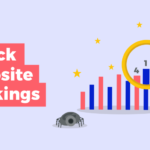Finding the right keywords is essential for successful SEO. It helps attract the right audience and boosts your site’s visibility.
Keywords are the backbone of online content. They connect your content with what people are searching for. By understanding the right keywords, you can reach your target audience more effectively. This process involves research and analysis. It may seem complex, but it’s crucial for your online success.
Whether you’re writing a blog or setting up an online store, keywords play a vital role. They improve search engine rankings and drive traffic to your site. In this post, we will explore why finding the right keywords is important. You will learn how to identify and use them effectively to grow your online presence.

Credit: www.studio98.com
Table of Contents
ToggleIntroduction To Keyword Research
Understanding keyword research is vital for anyone aiming to improve their website’s visibility. It involves identifying the words and phrases that potential visitors use in search engines. These keywords help drive traffic to your site.
Effective keyword research ensures that your content aligns with what your audience seeks. It helps you stay ahead of the competition and reach the right audience. Let’s delve deeper into the importance of keywords and how they impact SEO.
Importance Of Keywords
Keywords are the foundation of any successful SEO strategy. They connect your content with the audience’s search queries. By targeting the right keywords, you can attract more visitors and increase engagement on your site.
There are several types of keywords to consider:
- Short-tail keywords: These are broad and general. Example: “shoes”
- Long-tail keywords: These are specific and detailed. Example: “best running shoes for flat feet”
- LSI keywords: Latent Semantic Indexing keywords are related terms. Example: “footwear,” “sneakers”
Each type serves a unique purpose. Short-tail keywords attract a broader audience. Long-tail keywords target niche markets. LSI keywords enhance content relevance.
How Keywords Impact Seo
Keywords play a significant role in SEO. They help search engines understand your content. Proper keyword use can improve your site’s ranking on search engine results pages (SERPs).
Here’s how keywords impact SEO:
- Content Relevance: Keywords ensure your content matches user intent.
- Search Engine Crawling: Search engines use keywords to index your pages.
- User Engagement: Relevant keywords attract and retain visitors.
Optimizing your content with the right keywords increases your chances of appearing in top search results. This leads to more organic traffic and better visibility for your site.
Remember to use keywords naturally. Avoid keyword stuffing. Focus on providing valuable and informative content.

Credit: searchengineland.com
Types Of Keywords
Understanding the types of keywords is essential for effective SEO. These keywords help you attract the right audience. They can be divided into two main categories: short-tail keywords and long-tail keywords.
Short-tail Keywords
Short-tail keywords are also known as head terms. They usually consist of one to three words. These keywords are broad and general.
Examples of short-tail keywords include:
- “Shoes”
- “Digital Marketing”
- “Travel Tips”
These keywords have high search volumes. But they are also very competitive. It’s challenging to rank for short-tail keywords. They attract a wide audience but with varied intent.
Long-tail Keywords
Long-tail keywords are longer and more specific. They usually consist of three or more words.
Examples of long-tail keywords include:
- “Best running shoes for women”
- “Digital marketing strategies for small businesses”
- “Travel tips for solo travelers”
These keywords have lower search volumes. But they are less competitive. Long-tail keywords attract a more targeted audience. Users searching for these terms know what they want. This often leads to higher conversion rates.
Using a mix of short-tail and long-tail keywords can improve your SEO strategy. This balance can help you reach a broad and targeted audience.
Tools For Keyword Research
Finding the right keywords is essential for SEO success. Using the right tools, you can discover keywords that attract traffic to your site. Whether you opt for free or paid tools, each has its own set of features and benefits.
Free Keyword Tools
Not everyone has the budget for premium tools. Fortunately, several free keyword tools are available. These tools provide valuable insights without costing a dime.
- Google Keyword Planner: This tool is part of Google Ads and offers keyword ideas and traffic estimates.
- Ubersuggest: Created by Neil Patel, it provides keyword suggestions, search volume, and competition data.
- Answer the Public: This tool visualizes search queries and questions people ask about a keyword.
- Keyword Sheeter: Generates thousands of keyword ideas quickly. Useful for brainstorming.
Paid Keyword Tools
Paid tools often offer more advanced features and deeper insights. They can be worth the investment for those serious about SEO.
| Tool | Features |
|---|---|
| Ahrefs | Comprehensive keyword analysis, backlink checking, and site audits. |
| SEMrush | Competitor analysis, keyword tracking, and domain overview. |
| Moz Pro | Keyword difficulty score, SERP analysis, and rank tracking. |
| KWFinder | Long-tail keywords, local SEO, and search volume analysis. |
Both free and paid tools have their place in keyword research. Choose the ones that best fit your needs and budget.
Keyword Research Process
The keyword research process is crucial for SEO success. It helps identify the terms your audience uses. This ensures your content reaches the right people. Let’s explore this process in detail.
Identifying Niche Topics
Begin by pinpointing your niche topics. These are subjects specific to your industry or field. Use these methods to find niche topics:
- Brainstorm ideas related to your business
- Use forums and social media to see what people discuss
- Check industry news and trends
Create a list of potential topics. This list will guide your keyword search. Remember, the more specific the topic, the better.
Analyzing Competitors
Analyzing competitors is an effective way to find valuable keywords. Follow these steps:
- Identify your main competitors
- Visit their websites and blogs
- Note the keywords they use in their content
Use tools like Ahrefs or SEMrush for a deeper analysis. These tools can show which keywords drive traffic to competitors’ sites. Compare these keywords with your list. This can help you discover new opportunities.
| Tool | Purpose |
|---|---|
| Ahrefs | Keyword analysis and competitor research |
| SEMrush | Comprehensive SEO and keyword tools |
Keep track of these keywords. Prioritize the ones that are relevant and have good search volume.
Keyword research is an ongoing process. Regularly update your keywords to stay competitive. This ensures your content remains relevant and effective.
Evaluating Keyword Potential
Evaluating keyword potential is crucial for effective SEO. It helps in determining which keywords can drive traffic to your site. This section covers key aspects like search volume and keyword difficulty to help you make informed decisions.
Search Volume
Search volume indicates how many times a keyword is searched in a month. High search volume means more people are looking for that keyword. But, it also means more competition.
- High Search Volume: More traffic, but also more competition.
- Low Search Volume: Less traffic, but easier to rank.
Tools like Google Keyword Planner can help you find search volumes. Use these tools to identify keywords that are popular but not overly competitive.
Keyword Difficulty
Keyword difficulty measures how hard it is to rank for a keyword. High difficulty means many sites are competing for that keyword. Low difficulty means fewer sites are competing.
| Keyword Difficulty | Implication |
|---|---|
| High | Hard to rank, but high traffic |
| Medium | Moderate competition, decent traffic |
| Low | Easy to rank, but lower traffic |
Tools like Ahrefs or Moz can provide keyword difficulty scores. Aim for keywords with low to medium difficulty. This balance helps you gain visibility without too much competition.
Evaluating keyword potential is essential for successful SEO. By understanding search volume and keyword difficulty, you can target keywords that are both valuable and achievable.
Keyword Optimization
Keyword optimization is the foundation of successful SEO strategies. It involves selecting and using the right keywords to improve search engine rankings. Let’s explore how to optimize keywords effectively.
On-page Seo
On-page SEO involves optimizing individual web pages. This helps rank higher and earn more relevant traffic in search engines. Proper keyword placement is crucial here.
- Title Tags: Include your main keyword in the title tag. Keep it under 60 characters.
- Meta Descriptions: Use keywords in meta descriptions. It should be under 160 characters.
- Headings: Use keywords in H1, H2, and H3 tags. This helps search engines understand your content better.
- Content: Naturally incorporate keywords throughout the text. Avoid keyword stuffing.
- URLs: Include keywords in URLs. Keep them concise and readable.
- Alt Text: Use keywords in image alt text. This improves image search rankings.
Content Strategy
A solid content strategy ensures your keywords are used effectively. It helps create valuable content that resonates with your audience.
- Research: Use tools like Google Keyword Planner to find relevant keywords.
- Planning: Create a content calendar. Plan topics around high-ranking keywords.
- Quality Content: Produce high-quality content. It should provide value and answer user queries.
- Internal Linking: Link to other relevant pages on your site. This helps distribute keyword authority.
- Content Updates: Regularly update old content. Incorporate new keywords and keep information current.
Following these keyword optimization practices can significantly improve your site’s visibility. Remember, focus on creating valuable content for your audience while strategically using keywords.
Tracking Keyword Performance
Monitoring how your keywords perform is crucial for your SEO success. Knowing which keywords drive traffic and conversions helps refine your strategy. Let’s explore methods to track keyword performance effectively.
Using Analytics Tools
Analytics tools provide valuable insights into keyword performance. Google Analytics and other tools help you track metrics like traffic, bounce rate, and conversion rate.
To start, access your website’s Google Analytics dashboard. Navigate to the “Acquisition” section, then click on “All Traffic” and “Channels.” Select “Organic Search” to view the keywords driving traffic to your site.
Create custom reports to track keyword performance over time. This helps identify trends and areas needing improvement.
| Metric | Description |
|---|---|
| Traffic | Number of visitors from a keyword |
| Bounce Rate | Percentage of visitors leaving after viewing one page |
| Conversion Rate | Percentage of visitors completing a desired action |
Adjusting Seo Strategy
Once you have the data, use it to adjust your SEO strategy. Focus on keywords performing well and refine those that aren’t.
- Identify high-performing keywords and create more content around them.
- Analyze low-performing keywords to understand why they aren’t working.
- Optimize your content by including variations of successful keywords.
Regularly review your keyword performance and make adjustments as needed. Consistent tracking and strategy refinement will improve your SEO efforts over time.

Credit: keywordtool.io
Common Keyword Research Mistakes
Keyword research is crucial for SEO success. But many make common mistakes that can hinder their efforts. Understanding these mistakes can help improve your keyword strategy. Below are some frequent errors to watch out for.
Ignoring Search Intent
One major mistake is ignoring search intent. Understanding the user’s intent behind a search query is vital. Users may search for information, make a purchase, or look for a specific website. If you fail to match your keywords with the user’s intent, your content may not rank well.
Consider the different types of search intent:
- Informational: Users seek knowledge or answers.
- Transactional: Users want to buy something.
- Navigational: Users look for a specific website.
Ensure your content aligns with these intents. This can improve your chances of ranking higher.
Overusing Keywords
Overusing keywords, also known as keyword stuffing, is another common mistake. Search engines penalize content that uses keywords unnaturally. It can make your content seem spammy and hard to read.
Instead, focus on natural keyword integration. Use synonyms and related terms to avoid repetition. Here’s a quick comparison:
| Keyword Stuffing | Natural Integration |
|---|---|
| “Buy cheap shoes. Cheap shoes for sale. Get cheap shoes now.” | “Looking for affordable shoes? Check out our sale for great deals!” |
Notice how natural integration is more readable. It also provides a better user experience. Remember, quality content should always come first.
What are the best keywords to use for boosting my website’s SEO?
When aiming to enhance your website’s SEO, incorporating essential tips for boosting website ranking into your content is crucial. Keywords such as “essential tips for boosting website ranking” can improve your site’s visibility and draw in more organic traffic. It’s important to conduct thorough keyword research to identify the most effective terms for your specific industry.
What Are the Key Strategies for Boosting SEO Ranking for a Website?
To improve your SEO ranking, implementing essential tips for boosting your website’s ranking is crucial. Begin by optimizing your website’s content and structure, conducting keyword research, and building high-quality backlinks. Regularly updating your content, improving site speed, and optimizing for mobile are also important strategies for boosting SEO ranking. Proven backlink techniques, such as seeking out relevant and authoritative websites for link building, can also greatly impact your website’s SEO ranking. Additionally, engaging in social media marketing and guest blogging can help increase your website’s visibility and attract more organic traffic. By implementing these essential tips and staying up-to-date with the latest SEO trends, you can effectively improve your website’s ranking and drive more valuable traffic to your site. In addition to these essential SEO tips, it is also important to regularly monitor your website’s performance using analytics tools and make necessary adjustments to your SEO strategy. Keeping an eye on your competitors’ SEO efforts and learning from their successes and failures can also provide valuable insights for improving your own ranking. By staying proactive and adaptable, you can continuously enhance your website’s SEO and stay ahead of the competition.
Frequently Asked Questions
What Are Keywords In Seo?
Keywords are words or phrases that describe the content. They help search engines understand the topic of your webpage.
How To Find Keywords For Seo?
Use tools like Google Keyword Planner, SEMrush, or Ahrefs. Analyze competitor websites and consider user intent to find relevant keywords.
Why Are Keywords Important?
Keywords improve search engine rankings. They help attract targeted traffic and increase the visibility of your content.
What Is Keyword Research?
Keyword research involves identifying popular search terms. It helps you understand what your audience is searching for.
Conclusion
Finding the right keywords is crucial for successful content. It boosts your visibility. Start with research to understand your audience’s needs. Tools like Google Keyword Planner help a lot. Use a mix of short and long-tail keywords. Keep your content natural and engaging.
Regularly update your keywords to stay relevant. Remember, quality content paired with good keywords can drive more traffic. Happy keyword hunting!








